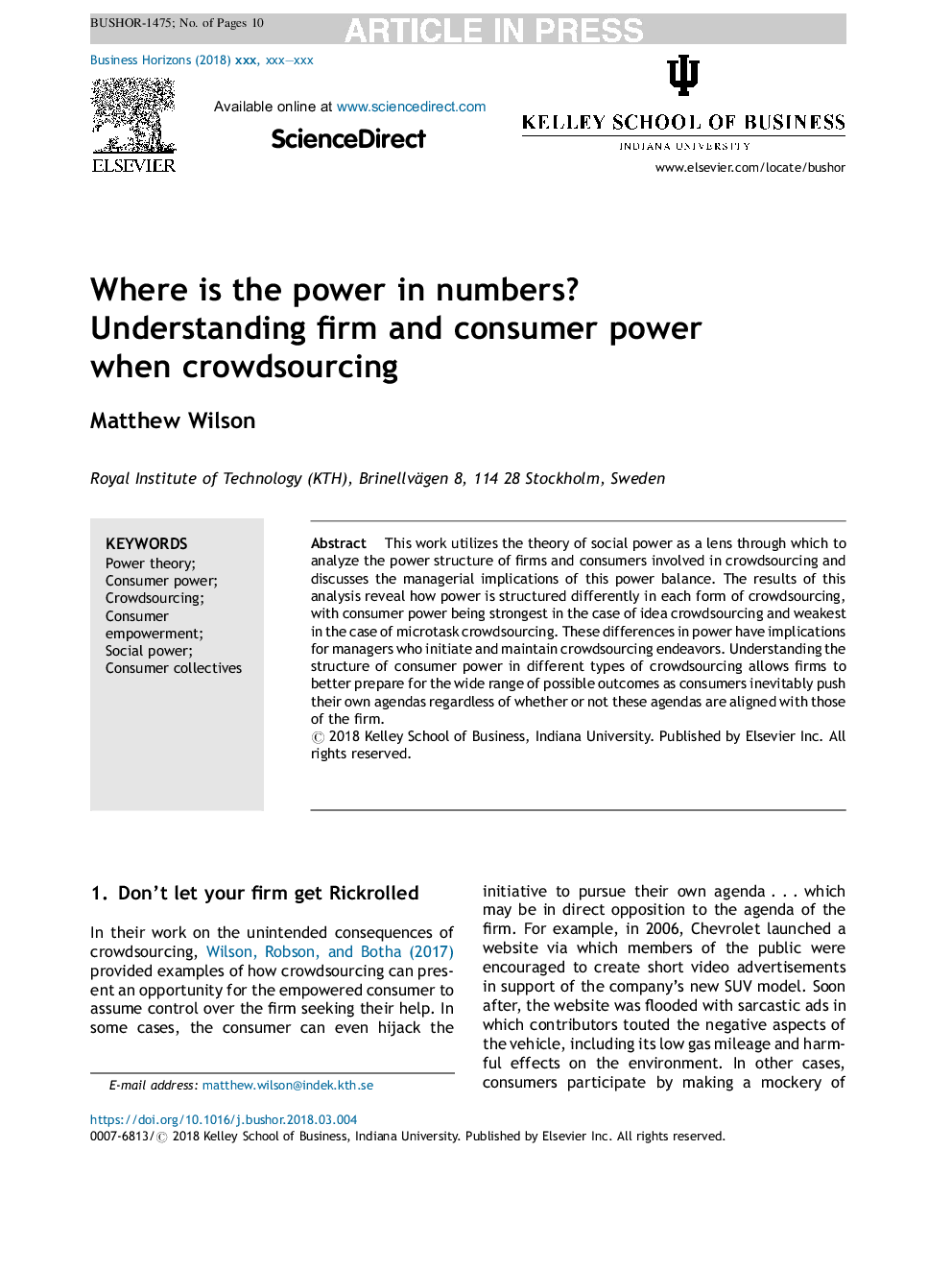| Article ID | Journal | Published Year | Pages | File Type |
|---|---|---|---|---|
| 7422924 | Business Horizons | 2018 | 10 Pages |
Abstract
This work utilizes the theory of social power as a lens through which to analyze the power structure of firms and consumers involved in crowdsourcing and discusses the managerial implications of this power balance. The results of this analysis reveal how power is structured differently in each form of crowdsourcing, with consumer power being strongest in the case of idea crowdsourcing and weakest in the case of microtask crowdsourcing. These differences in power have implications for managers who initiate and maintain crowdsourcing endeavors. Understanding the structure of consumer power in different types of crowdsourcing allows firms to better prepare for the wide range of possible outcomes as consumers inevitably push their own agendas regardless of whether or not these agendas are aligned with those of the firm.
Related Topics
Social Sciences and Humanities
Business, Management and Accounting
Business and International Management
Authors
Matthew Wilson,
